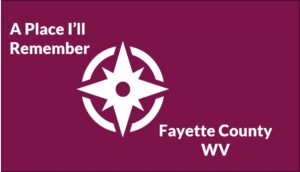 This post was going to be about Iceland, and a model they used to dramatically reduce teen smoking and drug use. As with many things, it popped into my consciousness from a number of angles – it was featured quite a while ago in The Atlantic Magazine and appeared in my LinkedIn feed, a description that was liked by one of my connections. Then, as I was researching it, I was delighted to see that Fayette County, WV is giving it a try as well. The key seems to be an alternative to “this is bad for you” messaging (which apparently kids already know). Here is the states that was epitomized by the “just say no” model. Iceland faced similar issues in the 90s with high rates of early teen smoking and drinking, which led nowhere good as the years went on. In this model, there is a redirected focus. Funds and resources and focused on connecting every kid to things that are good for you – providing engagement in creative and recreational pursuits that cultivate passion, purpose, and patience. Their results have been significant. Will the same thing work here? No doubt some tweaks will be necessary – culture does matter and our economic and social systems do differ. But really, that’s never been a good reason to reject a premise without experimentation, and that’s what Fayette County is trying, with some support from the resources dedicated to opioid addiction issues.
This post was going to be about Iceland, and a model they used to dramatically reduce teen smoking and drug use. As with many things, it popped into my consciousness from a number of angles – it was featured quite a while ago in The Atlantic Magazine and appeared in my LinkedIn feed, a description that was liked by one of my connections. Then, as I was researching it, I was delighted to see that Fayette County, WV is giving it a try as well. The key seems to be an alternative to “this is bad for you” messaging (which apparently kids already know). Here is the states that was epitomized by the “just say no” model. Iceland faced similar issues in the 90s with high rates of early teen smoking and drinking, which led nowhere good as the years went on. In this model, there is a redirected focus. Funds and resources and focused on connecting every kid to things that are good for you – providing engagement in creative and recreational pursuits that cultivate passion, purpose, and patience. Their results have been significant. Will the same thing work here? No doubt some tweaks will be necessary – culture does matter and our economic and social systems do differ. But really, that’s never been a good reason to reject a premise without experimentation, and that’s what Fayette County is trying, with some support from the resources dedicated to opioid addiction issues.
Why should economic developers care? Well, Iceland saw a dramatic reduction in not just bad habits but bad outcomes and disengagement. Don’t passion, purpose, and patience sound like great qualities to have in your local workforce? Here is a link to some information about the Iceland model, and you can read about the Fayette County model, in its early stages, here. The public health site associated with the model has some early outcome data here.
